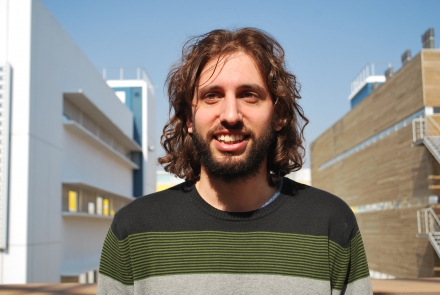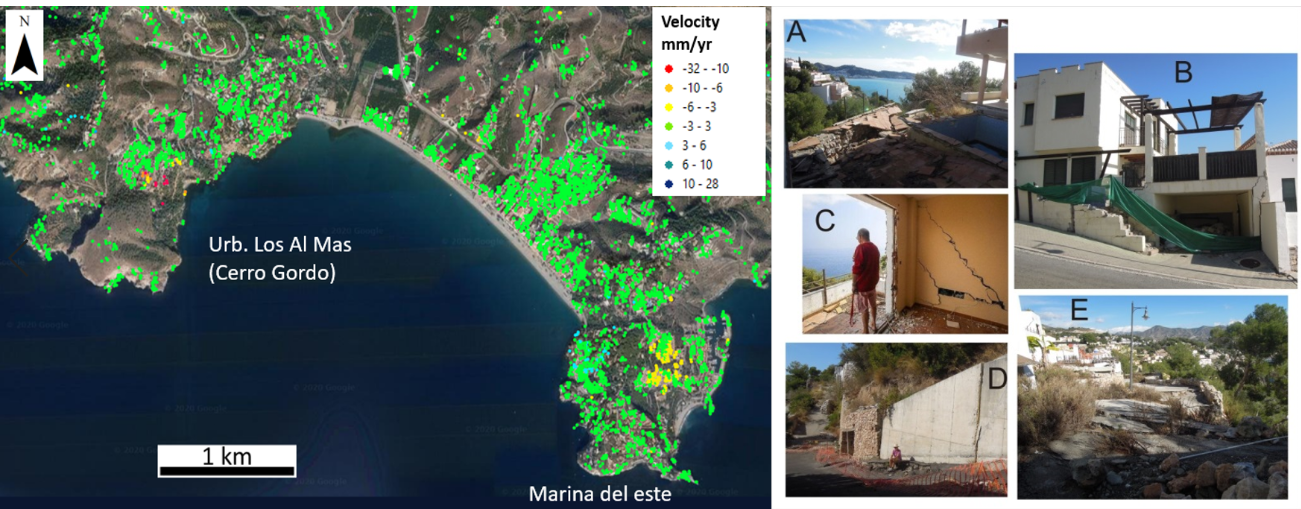Communication
Sudoe News
RISK MANAGEMENT: “One of the key issues is awareness of risks”, Interview with Oriol Montserrat
Categoría Management of projects approved
This year, Interreg celebrates its 30th birthday, focusing on three thematic of interest for European cohesion: youth, a greener Europe and neighborhood. In this context, every month, we interview one of our flagship projects related to one of these themes.
We have spoken with Oriol Monserrat, from the Catalonia Technology Center and coordinator of the RISKCOAST project, a project that prevents and mitigates geological risks in coastal areas.

-
What is RISKCOAST about?
RISKCOAST deals with the geological risks associated with adverse meteorological phenomena that, together with urban pressure, have consequences on the population. These include coastal erosion, landslides, subsidence, etc. We try to provide tools based on cutting edge technologies that improve prevention, action in emergencies and mitigation of the effects associated with these risks. Also, we are interested in the problems related to water at the basin level to see how these affect the coasts since what happens upstream also matters on the beach.
- What are the most common risks perceived on our coasts? Have they been changing in recent years?
Here, we are dealing with geological hazards. These have always existed but their intensity has been changing over the last few years, as well as their quantity that has been increasing. There are more and more severe storms, with intense rains, and the truth is that the terrain is not prepared for this type of event. If we add urban construction to this, we find ourselves with problems of reactivation of landslides on coasts that destroy accommodation and therefore lead to evictions. On the other hand, heavy rains cause floods that are increased due to excessive construction and its consequent subsidence of land.
- From what you tell us, the risks suffered by our coasts are correlated with construction. What is the impact of men on our coasts?
It has a direct impact. For example, on the Granada coast, we have 3 partially vacated urbanizations. For many years, we have been building with little urban planning on unstable slopes and all this has ended up generating problems that now affect directly the population. In addition, when population grows, we tend to pull water from the subsoil, but it must be taken into account that construction affects the regime of groundwater and streams, which has a direct effect on erosion. All these phenomena derive from human actions and therefore, with RISKCOAST, we are committed to prevention through tools that allow us to better understand the territory and facilitate urban planning.
- Your project is mainly addressed to specialists in urban planning and public authorities. Do you notice that there has been a change of mentality regarding risk prevention?
Our tools are useful for urban planning professionals and, also, for civil protection. We have been working with them for many years and the predisposition has always been very good. It is true that we now have a lot of tools that allow to better manage the risk cycle. With RISKCOAST, our aim is to disseminate information about risks and encourage the use of innovative tools.

-
You use cutting edge technologies. What kind of technologies are we talking about?
We work at three levels. The first is based on satellite techniques and has a regional focus. We capitalize on existing free satellite data and develop tools that translate this satellite data to the needs of each institution, civil protection and territorial managers. The second level is based on ground-based sensors, with a local focus, for emergencies. We use drones to monitor critical areas and we also work with terrestrial grounded based sar and scanner lasers that allow to monitor active phenomena in almost real time. All this facilitates immediate decision-making. The last level focuses on understanding hydraulic basins in order to understand what happens on the coasts. It is not as technological but it remains key.
- To what extent does it benefit to cooperate with entities from other countries?
Thanks to the project, we can grow our network and this is enriching. We had already worked with Spanish partners in the past but now we have been able to include Portuguese and French entities with whom we had not had the opportunity to collaborate.
- Finally, what could our readers do to contribute to the prevention of risks on the coasts?
Today, there are many projects that involve citizens. One of the important things is that information is collected to model and prevent better and here, ordinary citizens can have a key role, documenting the incidents they find with pictures, videos or others. To do this, one of the key issues is awareness of risks, that people know that they exist and that they understand them because unfortunately, one only pays attention when one is a victim of one of these phenomena. But we are working on it.
Thank you very much Oriol.
If you want to know more: http://www.riskcoast.eu/
Si quieres saber más: http://www.riskcoast.eu/



